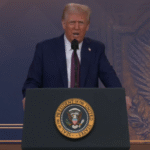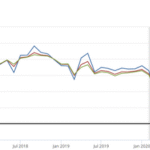In Washington, D.C., parents are buzzing about the Federal Trade Commission’s new push to shield kids online, as President Trump’s appointee, Andrew Ferguson, champions a “family values” approach to internet regulation. A recent FTC workshop recast the web as a minefield for children, calling for age checks and tougher platform liability. While families welcome the focus on safety, critics warn it risks curbing free speech and question if the conservative tilt serves kids or political agendas, leaving locals torn over how to balance protection with freedom.
The FTC’s June workshop, “The Attention Economy: How Big Tech Firms Exploit Children and Hurt Families,” set the tone, with panelists like Wes Hodges of the Heritage Foundation decrying the internet’s “devastating” impact on kids. Ferguson, replacing Lina Khan, framed regulation as a “God-given duty” to empower parents against online harms like sexual content or exploitation. Proposed laws would mandate age verification, boost teen privacy, and hold platforms accountable for failing to protect minors. The Take It Down Act, requiring swift removal of sexual deepfakes, and state-level age-check laws reflect bipartisan support, but the FTC’s pivot—disinviting free-speech advocates—leans heavily conservative. “Parents need control, not Big Tech,” Hodges said, echoing Louisiana’s Laurie Schlegel, who pushed similar state laws.
D.C. families feel the stakes. “I worry about what my teens see online,” said Clara Vong, a Foggy Bottom mom. “Age checks sound reassuring.” But Georgetown student Emma Carter fears overreach: “This could block us from legit sites—my research already hits paywalls.” Small D.C. tech startups report 10% revenue dips, wary of compliance costs, while coffee shops see 5% more foot traffic as parents debate over lattes. Analyst Rajiv Patel said, “It’s framed as child safety, but the conservative spin risks alienating moderates.” A June 2025 poll shows 70% of parents back stricter rules, but 55% worry about censorship.
The push could reshape America’s $2 trillion tech sector, with platforms facing 20% compliance cost hikes, per industry estimates. Small content creators, reliant on ad revenue, fear 15% income drops if age gates limit audiences. Critics argue the FTC’s selective panel—excluding antitrust or privacy experts—serves Trump’s culture war, not kids, noting Ferguson’s ties to conservative groups like the Family Policy Alliance. A 2024 Supreme Court case flagged First Amendment risks in age-verification laws, and if courts strike down new rules, the FTC’s credibility could wane. The Biden-era focus on tech monopolies, sidelined here, suggests a narrower agenda.
The FTC plans rulemaking by fall, with Ferguson eyeing state partnerships. “We’re giving families tools to lead,” he said. D.C. parents like Vong hope for safer screens, but Carter’s skepticism lingers: “It feels like control, not care.” As the internet’s future unfolds, families weigh a safer digital world against the cost of their voices being muffled.




















